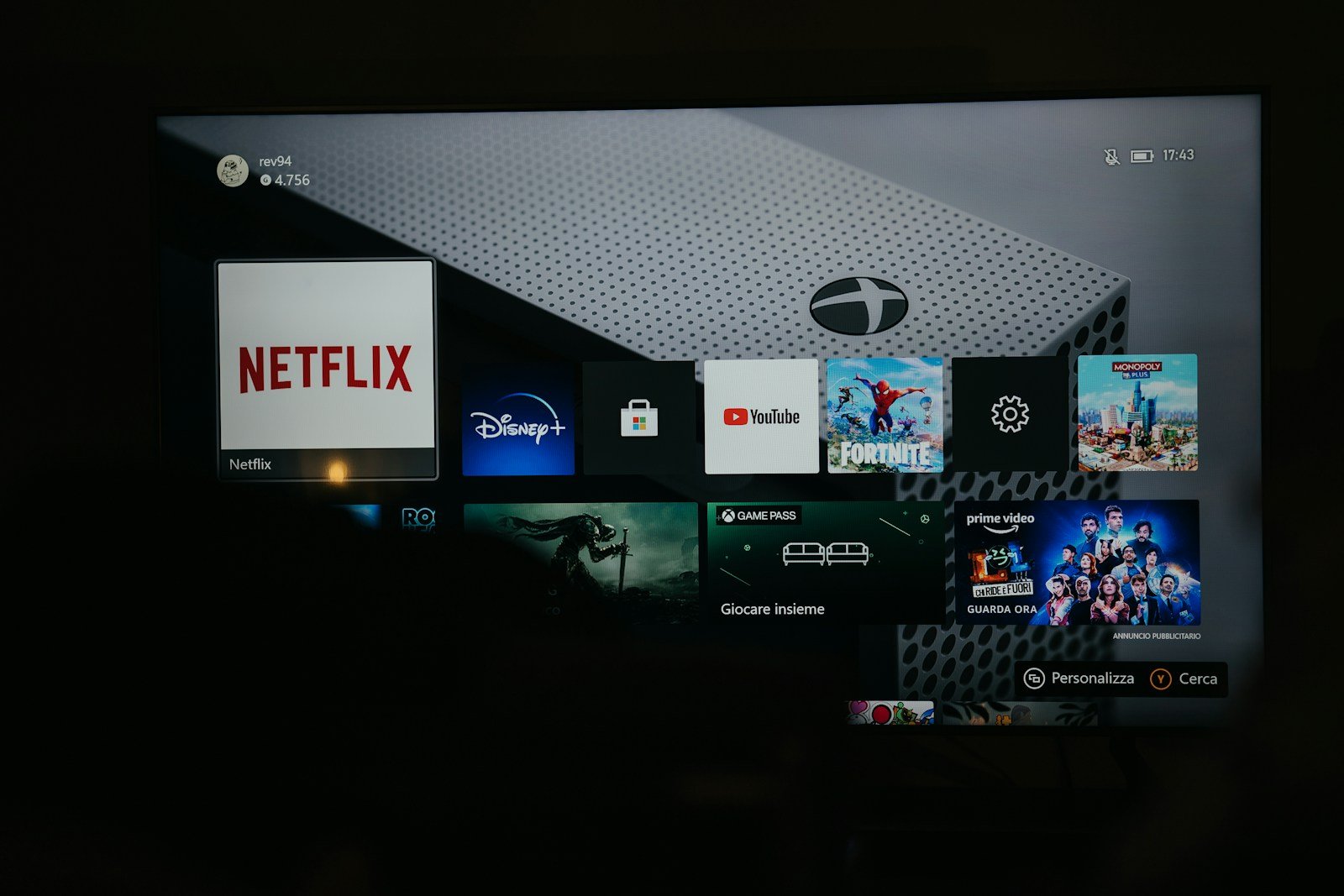How to Reduce Screen Time Before Bed
Over the years, your evening screen time has likely increased, impacting your sleep quality and overall well-being. Reducing this habit is imperative for improving your sleep patterns and enhancing your nightly rest. In this guide, you will discover practical strategies to help you limit screen exposure before bed, allowing you to cultivate a healthier bedtime routine. Read on to learn effective techniques that can transform your nights and boost your daytime productivity.
Key Takeaways:
- Establish a technology cutoff time, ideally one hour before bedtime, to allow your mind to unwind.
- Create a bedtime routine that includes activities like reading or meditating, which can replace screen time with calming alternatives.
- Use settings or apps that reduce blue light exposure on devices in the evening to minimize disruption to sleep cycles.
- Designate your bedroom as a screen-free zone to create an environment conducive to relaxation and sleep.
- Engage in physical activities during the day, which can help reduce the urge to use screens at night and improve overall sleep quality.
The Invisible Consequences of Late-Night Screen Exposure
Impacts on Sleep Quality
Exposure to screens in the hours leading up to bedtime disrupts your natural circadian rhythms. The blue light emitted by devices like phones, tablets, and laptops interferes with melatonin production, the hormone responsible for regulating sleep. Research has shown that reducing exposure to blue light for just one hour before bed can improve your overall sleep quality. For instance, a study conducted by the Harvard Health Publishing found that participants who minimized their screen time at night experienced more restful sleep and felt more alert the following day. The inability to fall asleep easily or obtain adequate restorative sleep can become a frustrating pattern without proper management.
This cumulative effect can often lead to chronic sleep deprivation, which has been linked to numerous health issues. From decreased cognitive function to increased susceptibility to illnesses, the stakes are high when it comes to prioritizing quality sleep. The longer you expose your eyes to screens at night, the more you risk falling into a cycle of poor sleep quality, making daytime functioning a challenge that further encourages late-night screen usage.
Effects on Mental Health and Productivity
Lack of quality sleep due to late-night screen exposure is a significant factor in fluctuating mental health. The connection between sleep and mental well-being is well established: inadequate sleep can lead to increased anxiety, depression, and irritability. For example, a lack of adequate sleep can heighten stress levels and exacerbate feelings of overwhelm, making it harder for you to manage daily tasks effectively. When your brain is deprived of necessary rest, it struggles to process emotions and respond to stressors, which ultimately fits into a broader narrative of mental fatigue and emotional instability.
The effects extend into your productivity levels as well. A clear link exists between adequate sleep and cognitive performance. When you sacrifice precious hours for screen time, you may find it increasingly challenging to focus and stay organized during the day. According to the National Sleep Foundation, those who regularly achieve optimal sleep perform better in tasks requiring problem-solving and attention span, which is especially relevant in work or educational settings. Missing out on sleep compromises not just your mood but also your ability to achieve goals and function at your best.
The ripple effect of poor sleep is evident: your thoughts become disjointed, urgency gives way to procrastination, and even simple tasks can take longer to complete. You might feel less motivated to engage in social activities or pursue hobbies as fatigue sets in, forming a barrier to personal fulfillment and connection. Tackling late-night screen exposure is not just about enhancing sleep; it’s about rediscovering your potential and reclaiming your ability to stay present in both work and life.
Practical Strategies to Limit Evening Screen Use
Establishing a Digital Curfew
Setting a digital curfew can transform your evening routine, helping you gradually distance yourself from screens. Aim for a cutoff time—ideally one hour before your bedtime—during which you commit to disconnecting from all electronic devices. This creates a buffer period that allows your mind to transition from the stimulation of screens to a more relaxed state in preparation for sleep. Choose a time that fits comfortably within your nightly schedule, and stick to it to make it a habit that your body recognizes. To reinforce this practice, consider placing your devices in another room during this time.
You may find it beneficial to change the way you view your devices. Instead of seeing them as tools for entertainment or communication, think of them as barriers to quality sleep. By actively deciding that your physical and mental well-being outweighs the fleeting satisfaction of scrolling or streaming, you can shift your mindset and strengthen your resolve to maintain your digital curfew.
Implementing Screen-Free Activities
Engaging in screen-free activities can provide a delightful way to unwind before sleep. Consider replacing your evening digital entertainment with alternatives such as reading a book, practicing meditation, or trying out a new hobby—like painting or knitting. Even simple activities, like journaling or doing a puzzle, can help capture your attention and naturally lead you to a peaceful state of mind. These activities not only promote relaxation but also foster creativity and mental clarity that screens often overshadow.
Exploring various screen-free activities can also help you discover new interests that can become part of your nightly routine. For example, cooking simple meals can be a calming ritual that takes your focus away from screens while nourishing your body. Physical activities, such as light stretching or yoga, not only enhance relaxation but improve sleep quality in the long run, making them a great addition to your evening wind-down routine.
Utilizing Technology to Your Advantage
You can leverage technology to minimize screen use by utilizing built-in features on your devices. Most smartphones and computers have settings that allow you to filter blue light and adjust screen brightness during the evening. Consider utilizing ‘Do Not Disturb’ modes to mute notifications after your digital curfew. In addition, numerous apps can help track your screen time, giving you insight into usage patterns that may be affecting your sleep. By using these tools strategically, you can ensure that your evening screen exposure remains within healthy boundaries without completely forgoing the conveniences technology offers.
Moreover, establishing reminders through calendar applications can help reinforce your digital curfew commitments. Setting alerts to signal winding down can actively remind you to transition away from screens. Combining this approach with your other strategies will create a comprehensive plan that supports all your efforts to promote healthier sleep habits.
Designing a Relaxing Nighttime Environment
The Role of Lighting and Sound
Soft lighting can be your best ally in creating a calming atmosphere. Dimmer switches or soft light bulbs that emit warmer tones can signal your brain that it’s time to unwind. Consider using lamps instead of overhead lights, and avoid harsh fluorescents in the evening. Additionally, incorporating sound, such as gentle music or white noise, can help mask distracting noises and enhance your relaxation time. The right sound environment promotes tranquility and prepares your body for rest. Studies show that soothing sounds, like ocean waves or gentle rain, can significantly lower stress levels and help facilitate a smoother transition to sleep.
To take it a step further, you can implement blackout curtains to diminish residual light from street lamps or headlights. This will not only enhance your ability to fall asleep, but it may also improve your overall sleep quality. Pairing this with soundproofing techniques, such as adding rugs or wall hangings, can create an even more soothing environment, allowing your mind to clear and relax before you retire for the night.
Creating a Cozy Bedtime Routine
A comforting bedtime routine can act as a cue for your body that it’s time to relax. Activities such as reading, journaling, or gentle stretching can help set the tone for a peaceful night ahead. Designing a sequence that includes the same activities every night reinforces this routine. This consistency signals your brain to commence the winding down process. Invest in soft, calming scents like lavender or chamomile, which can add a multi-sensory element to your rituals, enhancing your relaxation further.
Additionally, consider setting aside a few minutes each evening to reflect on your day or jot down thoughts in a gratitude journal. This practice can alleviate stress and allow you to clear your mind before drifting off. Even including a cup of herbal tea in your nighttime process promotes better sleep by encouraging body warmth and relaxation. Small adjustments to your routine can lead to significant improvements in your overall sleep health, giving you the restful nights you deserve.
Cultivating Healthier Habits for Evening Wind-Down
The Power of Mindfulness and Meditation
Mindfulness and meditation serve as powerful tools to prepare your mind and body for a restful night. Engaging in a few minutes of focused breathing can significantly lower your heart rate and decrease anxiety levels. For instance, studies show that just ten minutes of meditation each evening can lead to better sleep quality. You might consider practicing mindfulness through techniques such as body scanning or guided imagery, which help ground you in the present moment and create a sense of calm. Creating this atmosphere can be as simple as finding a quiet spot, closing your eyes, and focusing on your breath.
Incorporating mindfulness into your evening routine can also help you detach from the day’s stressors. Visualization exercises, where you picture peaceful settings or events, can stimulate feelings of serenity, making it easier to drift off. Research indicates that individuals who practice these techniques regularly report experiencing fewer sleep disturbances, emphasizing the importance of aligning your thoughts positively before bedtime.
Incorporating Reading and Journaling
Integrating reading and journaling into your evening rituals creates a serene transition away from screens. Reading can transport you to different worlds, making it an effective distraction from any technology-induced stress. Choose materials that are light-hearted or inspirational to foster a positive mindset as you near bedtime. Opting for physical books over e-readers helps eliminate the blue light that disrupts melatonin production, making it easier for you to fall asleep. Studies suggest that only six minutes of reading can reduce stress by up to 68%, showcasing the immense benefit these habits hold.
Journaling, on the other hand, provides a valuable outlet for reflection and emotional release. Taking a few moments to jot down your thoughts, gratitude, or even dreams can clear your mind of distractions and worries. The act of writing connects your mind with your hands, solidifying thoughts into tangible form. Committing to a journaling practice can enhance your self-awareness and improve overall mental clarity. For instance, keeping a gratitude journal can shift your focus toward positivity, promoting a peaceful state of mind before sleep.
Conclusion
Summing up, reducing your screen time before bed can significantly enhance your sleep quality and overall well-being. By implementing strategies such as setting specific cut-off times for devices, creating a relaxing bedtime routine, and utilizing apps designed to limit screen usage, you can foster a healthier sleep environment. It is imperative to prioritize your rest and create physical boundaries between you and your devices to promote better sleep hygiene.
Incorporating these changes into your nightly routine will not only help you sleep better but can also improve your productivity and mood during the day. For more insights on the impact of technology on your sleep habits, you may find helpful information in this article on Screen time before bed: How tech affects sleep habits. Make small adjustments today for a more restful night tomorrow.
FAQ
Q: Why is reducing screen time before bed important for sleep quality?
A: Reducing screen time before bed helps in minimizing exposure to blue light emitted by digital devices. Blue light can interfere with the production of melatonin, the hormone responsible for regulating sleep. By limiting screen time, you can enhance your ability to fall asleep faster and achieve a deeper, more restorative sleep.
Q: What are some effective strategies to limit screen time at night?
A: Several strategies can help manage screen time before bed. Consider setting a specific cut-off time for screens, ideally 30-60 minutes before sleep. You can also create a nighttime routine that includes relaxing activities like reading a book, meditating, or listening to calming music instead of using your phone or computer.
Q: How can I manage notifications to reduce distractions in the evening?
A: You can manage notifications by enabling “Do Not Disturb” mode on your devices during the evening. This setting allows you to receive only important calls and messages while silencing other notifications that may draw you back to your screen. Additionally, consider setting specific times to check messages or social media to limit constant interruptions.
Q: What alternatives can I use instead of screens for winding down before bed?
A: There are plenty of alternatives to screens for relaxation before bed. You can try reading a physical book or magazine, doing some light stretching or yoga, journaling your thoughts, or engaging in a creative hobby like knitting or drawing. These activities can help signal to your brain that it’s time to wind down without the need for screens.
Q: How can I make my bedroom more conducive to a screen-free environment?
A: To create a screen-free environment, consider removing electronic devices from your bedroom entirely or designating a specific area, like a charging station, outside the room. Use blackout curtains to darken the space, keep ambient lighting low, and incorporate comfortable bedding and pillows to enhance relaxation. This way, your bedroom becomes a sanctuary for sleep rather than a workspace or entertainment hub.








